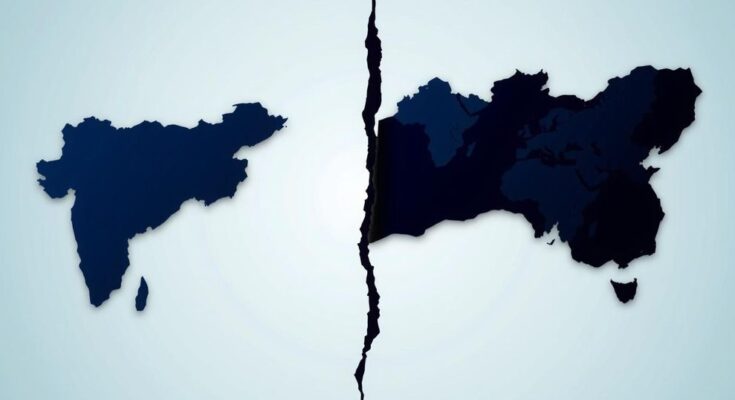Kenyan Vice President Kithure Kindiki welcomed RSF leader Hemedti, leading Sudan to accuse Kenya of supporting human rights violations. Despite Kenya’s claims of neutrality, international backlash, particularly from the U.S. and U.N., raises questions about its diplomatic role. Kenya’s actions contribute to a deteriorating image, with accusations of human rights violations against opposition figures and asylum-seekers.
In a recent development, Kenyan Vice President Kithure Kindiki welcomed Mohamed Hamdan “Hemedti” Dagalo, leader of the Rapid Support Forces (RSF) militia, at Nairobi’s Jomo Kenyatta International Airport, igniting a diplomatic controversy. The United Nations has implicated the RSF in severe human rights violations in Sudan, prompting allegations from Sudan that Kenya’s reception of Hemedti demonstrates an endorsement of such crimes. This led Sudan to recall its ambassador to Kenya and label the nation as a “rogue state” that undermines international norms.
The RSF and the Sudanese army have been embroiled in a civil war since April 2023, causing over 12.5 million displacements and thousands of deaths. Both the RSF and the Sudanese military faced sanctions from the U.S. and the U.N. for their roles in these humanitarian crises. Additionally, in February 2024, Kenya facilitated a meeting where RSF members established a charter aimed at forming a rival government in Sudan, a move condemned by multiple international stakeholders including the U.S. and U.N. for potentially destabilizing the region.
Despite criticism, Kenya refuted claims of siding with the RSF by asserting its commitment to being neutral. An official statement emphasized Kenya’s role as a peace facilitator in the region, stating it continues to pursue solutions to the humanitarian crisis in Sudan. However, the U.S. State Department and the U.N. Security Council have voiced grave concerns regarding Kenya’s involvement, which could lead to further international isolation.
Kenya’s alleged support for conflicts extends beyond Sudan. In late 2023, Kenya hosted members of the M23 rebel group, accused of committing atrocities in the Democratic Republic of Congo (DRC). While Kenya maintains a stance of neutrality, DRC reacted by recalling its ambassador and expelling Kenyan troops. DRC President Felix Tshisekedi notably boycotted a summit chaired by Kenyan President William Ruto in early 2024 in response to these actions.
Human rights organizations have criticized Kenya for breaching international human rights standards, particularly in its treatment of opposition leaders and asylum-seekers. Notably, in November 2023, Kizza Besigye, a Ugandan opposition figure, was abducted in Nairobi and subsequently faced treason charges in Uganda. Previously, in October 2023, Kenya repatriated four asylum-seekers to Turkey, facing threats of political persecution.
Overall, Kenya, once viewed as a pivotal mediator in African conflicts, now faces criticism for its increasing partisan involvement in various crises. Its actions in Sudan and the DRC reflect a shift from its perceived neutrality. Concerns regarding Kenya’s human rights practices further exacerbate this image, as the nation appears increasingly distanced from international legal obligations, with some analysts categorizing it as a rogue state.
In conclusion, Kenya’s recent engagement with the RSF and M23 regions has led to substantial diplomatic controversy, raising significant concerns about its neutrality and commitment to international norms. The actions taken by the Kenyan government in Sudan and the DRC are contributing to a perceived decline in its status as a reliable mediator. Additionally, human rights violations committed by Kenya against opposition and asylum-seekers further isolate it from accepted international standards, prompting analysts to reconsider its role and reputation on the global stage.
Original Source: www.voanews.com




